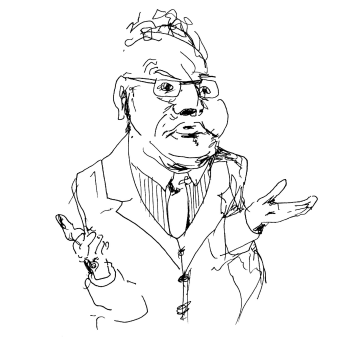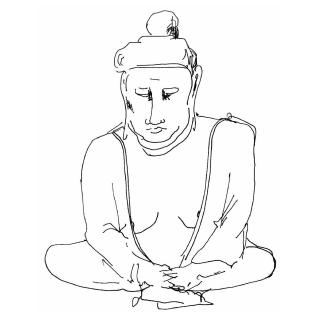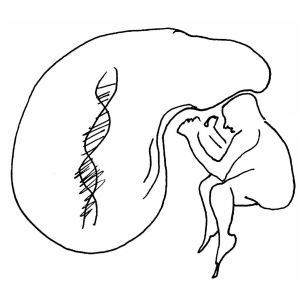Have you ever noticed that anybody driving slower than you is an idiot, and anyone going faster than you is a maniac?
-George Carlin
Often, “closed-minded” and “judgmental” are labels applied only to people or positions you disagree with.
It’s not closed-mindedness per se that’s the problem—it’s just that someone’s mind is closed to the correct view, perspective, or opinion. I’ve never heard someone sincerely accuse another person of being too open-minded—it’s just about agreement on a particular issue.
If you label a person or action “judgmental”, you are passing judgment on the person or action. If you label someone as “close-minded”, you are closing your mind to their views and perspectives.
Take the example of gay marriage. People who disapprove of gay marriage are labeled “judgmental”. But of course, approval of gay marriage is itself a judgement. Unless you never consider an issue or form an opinion about it, there is no escaping judgement.
Opponents of gay marriage are criticized for being “closed-minded”. However, supporting gay marriage is necessarily closing your mind to conflicting perspectives, to some degree or another. Should supporters of gay marriage “open their minds” to the possibility that the Old Testament is correct about the immorality of gay marriage (Leviticus 20:13)—that god himself spoke out against homosexuality?
The use of these terms sets up a false continuum. The incorrect position (judgmental, closed-minded) is at one extreme, and the correct position (non-judgmental, open-minded) is at the other.
Labeling a position as closed-minded or judgmental is not an argument against that position; it’s just a label, like “bad”. When people use these terms they are simply stating that you are on the wrong spot on this continuum, instead of arguing why their place on the continuum is justified. They are, in Carlin’s wording, calling you a maniac or an idiot, without saying why.
Open-mindedness means seeking to understand positions you don’t hold, accept, or understand, in spite of the fact that you don’t hold, accept, or understand them.
Of course there are people who are closed-minded: they have not sought to understand another’s position, considered an issue, or heard the other side’s evidence. But because “closed-minded” is so often used as a synonym for “wrong”, it’s more useful to say that directly. For instance, “They are unfamiliar with the other side’s position and their supporting reasoning.” Or “They’re not familiar with the latest evidence”, etc.
Non-judgement in some Buddhist sense may also be a virtue (a topic for another discussion), but that’s not the sense in which people use the term. Everyone is judgmental about everything, and pretending that your judgement isn’t a judgement is unhelpful. Maybe “That judgement is incorrect because….”.


 Parents are those who will care no matter what; will cart away the excrement; risk getting it on their hands and clothing; suffer being shat upon.
Parents are those who will care no matter what; will cart away the excrement; risk getting it on their hands and clothing; suffer being shat upon. Nothing in life is as important as you think it is while you are thinking about it.
Nothing in life is as important as you think it is while you are thinking about it. “Nothing in biology makes sense except in the light of evolution.”
“Nothing in biology makes sense except in the light of evolution.” Skin not only covers our polluting and oozing innards but also allows us the illusion that the heart can be a seat of love and courage rather than just a pulsing slithery organ.
Skin not only covers our polluting and oozing innards but also allows us the illusion that the heart can be a seat of love and courage rather than just a pulsing slithery organ.
 Have you ever had the chance to meet with a professor, colleague, writer, or even an older family member and did not know what to say or ask? A person with so much knowledge, and you resort to talking about the weather.
Have you ever had the chance to meet with a professor, colleague, writer, or even an older family member and did not know what to say or ask? A person with so much knowledge, and you resort to talking about the weather. “Even a fool, when he keeps silent, is counted wise.”
“Even a fool, when he keeps silent, is counted wise.”